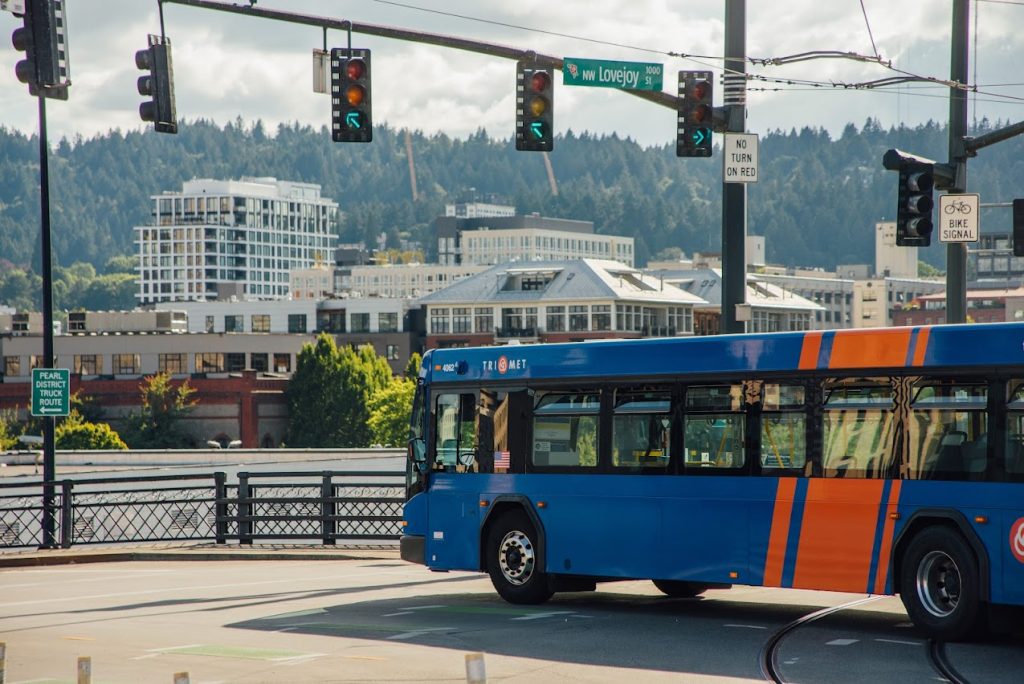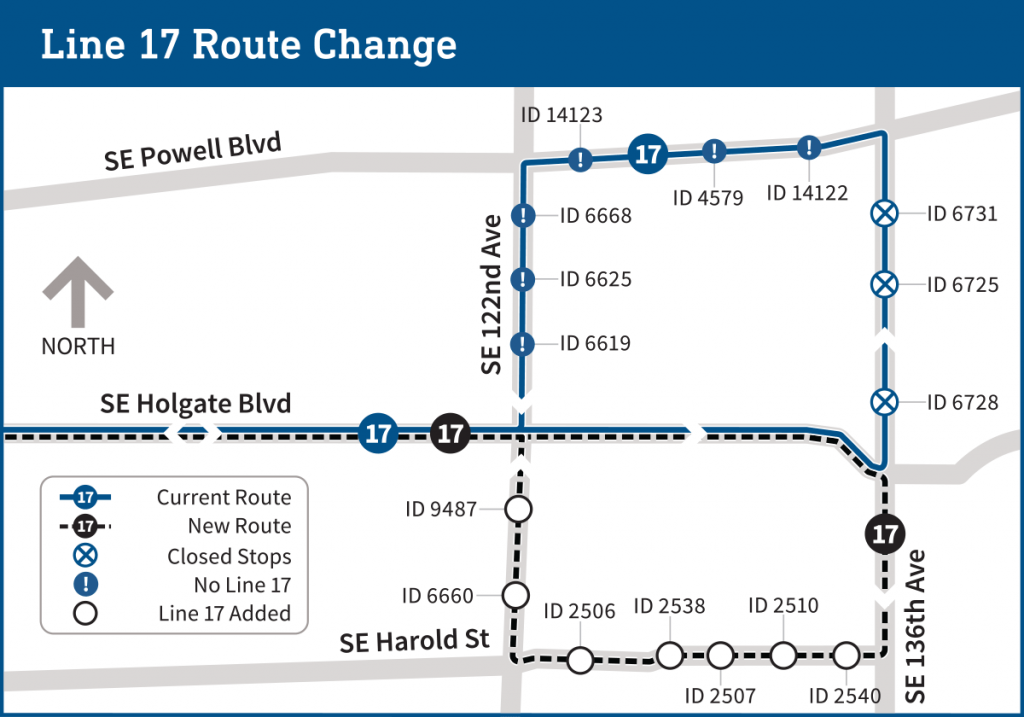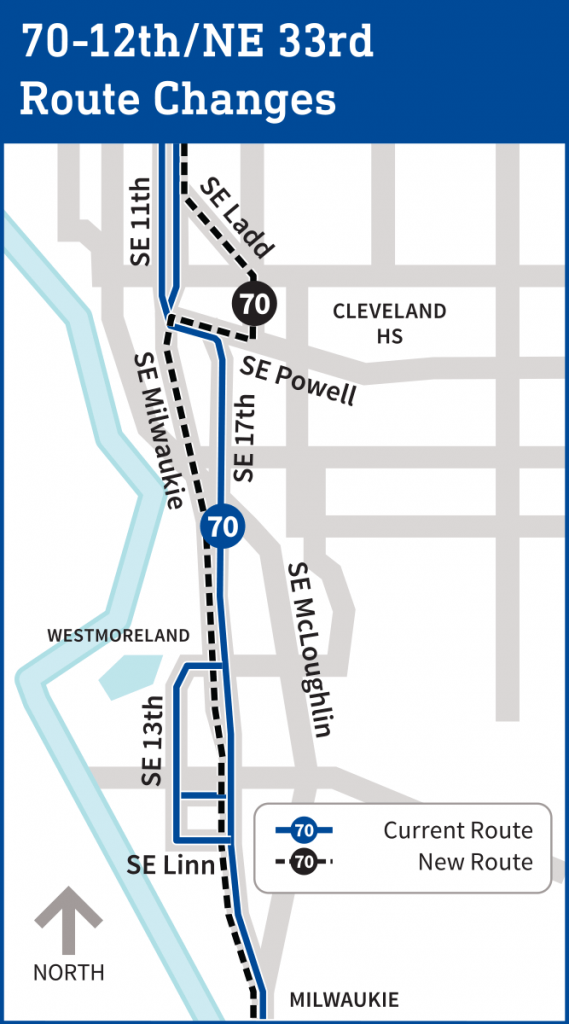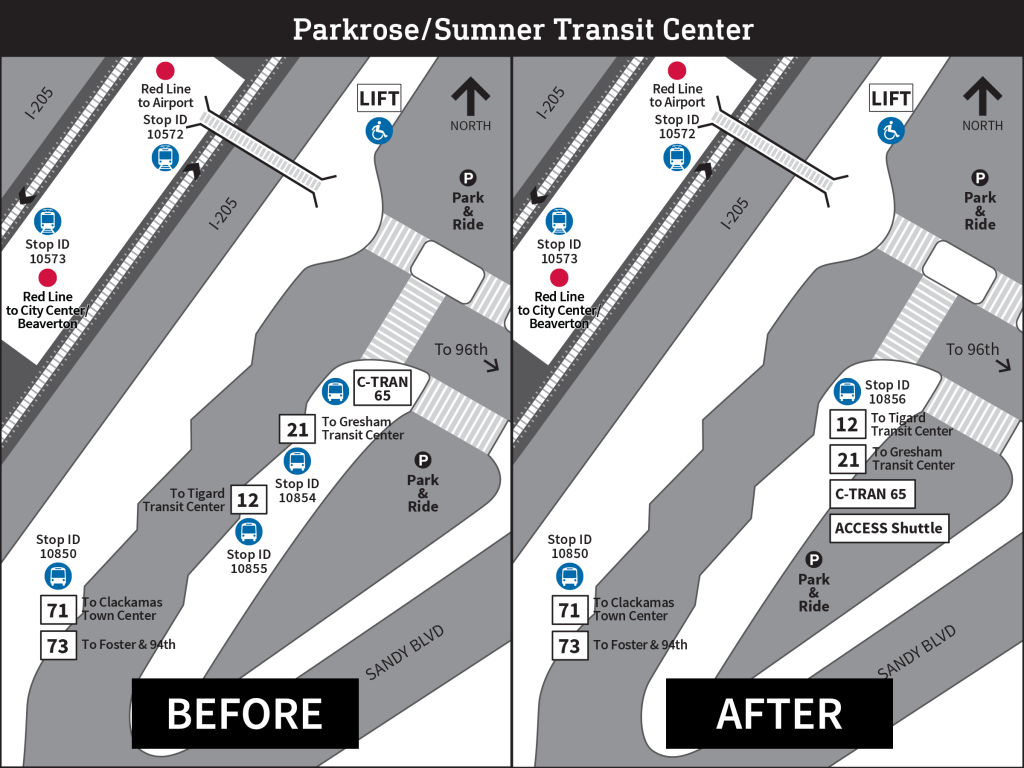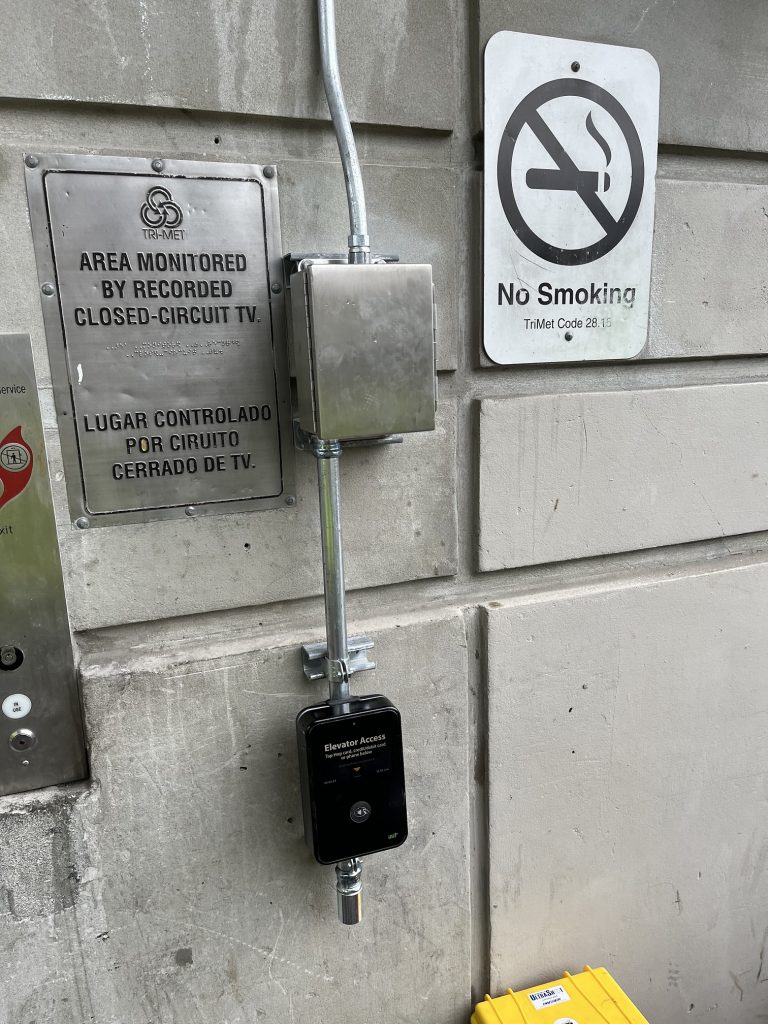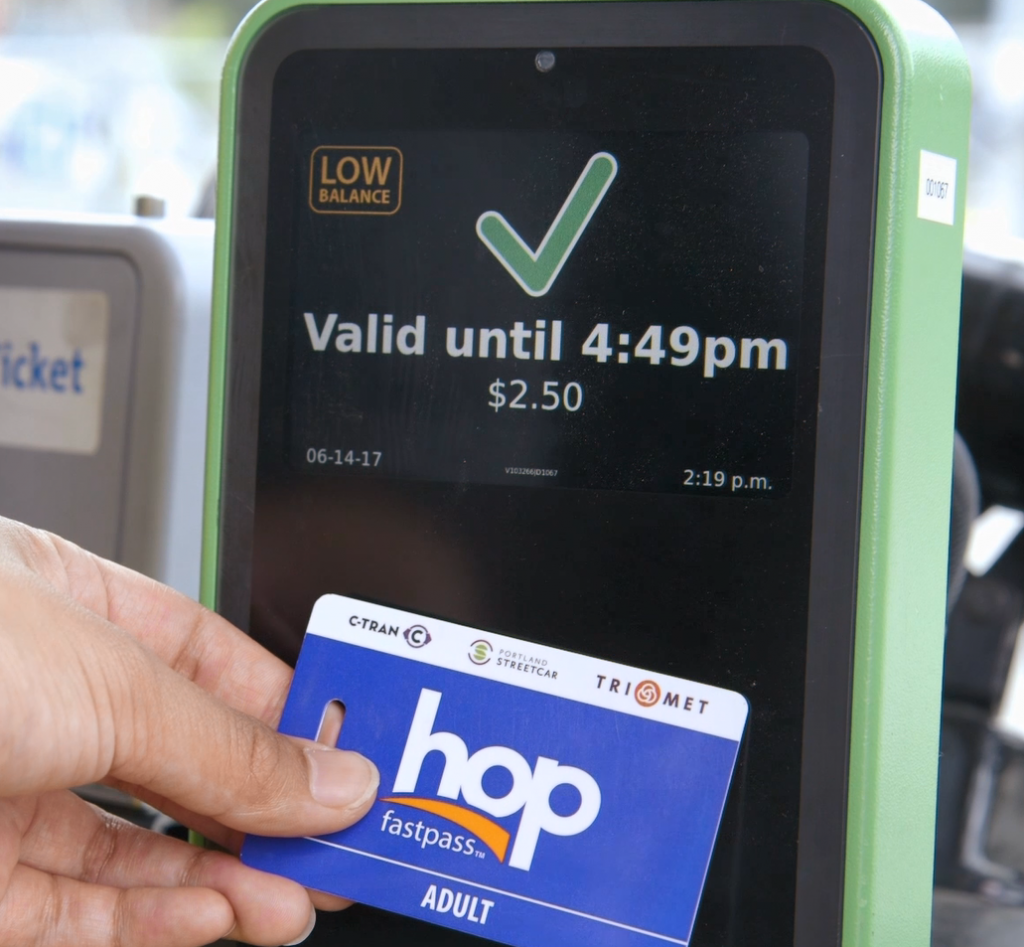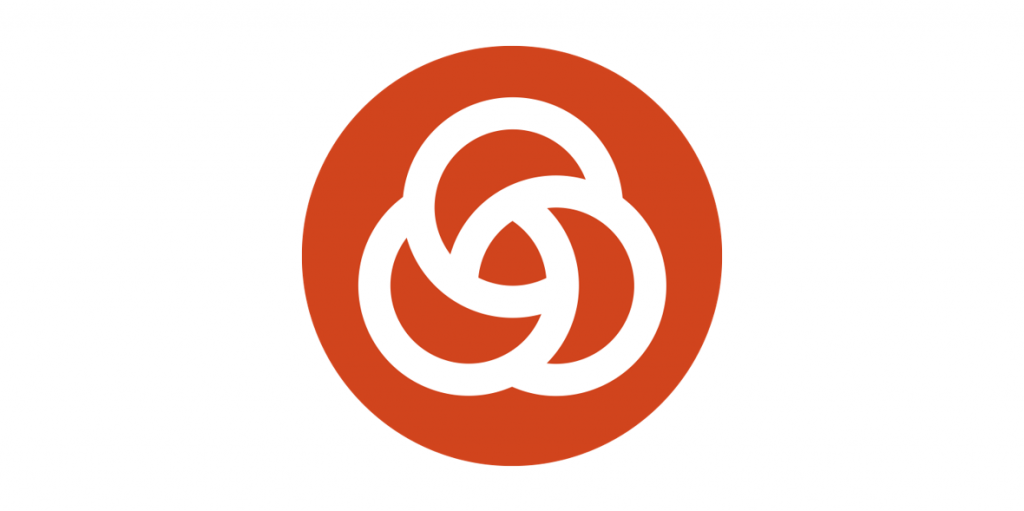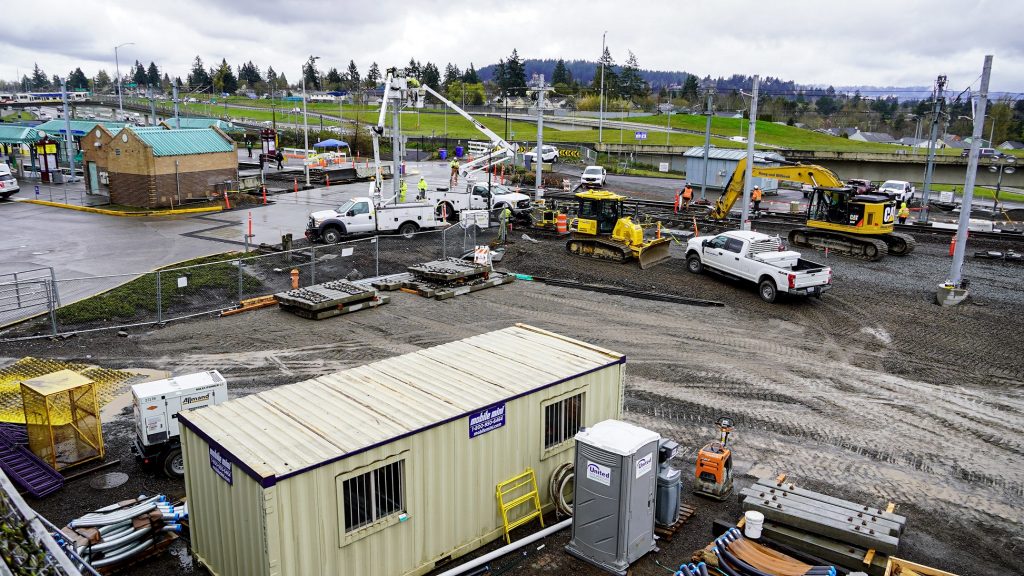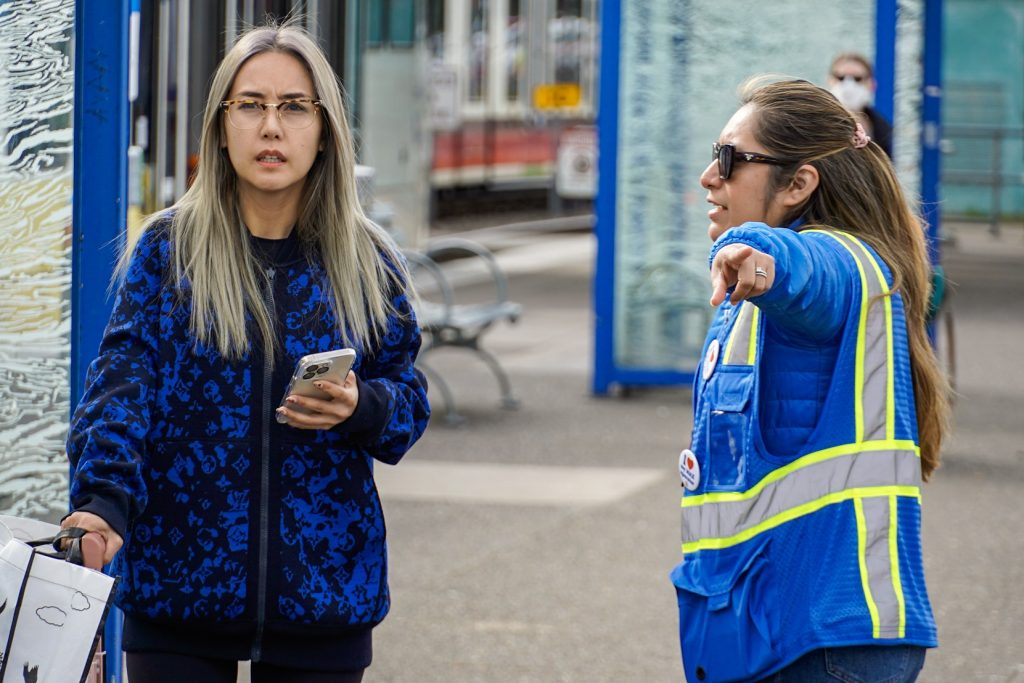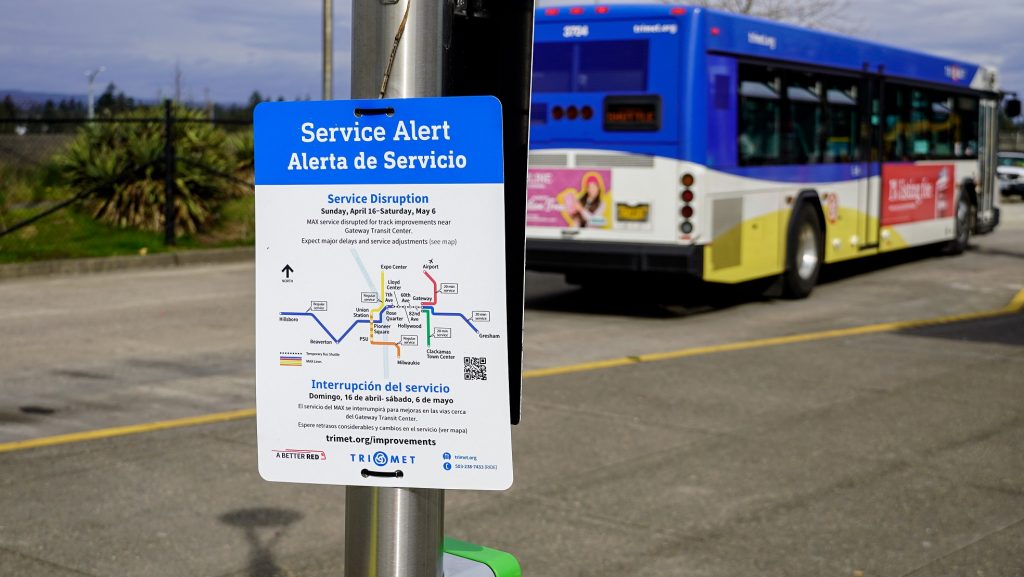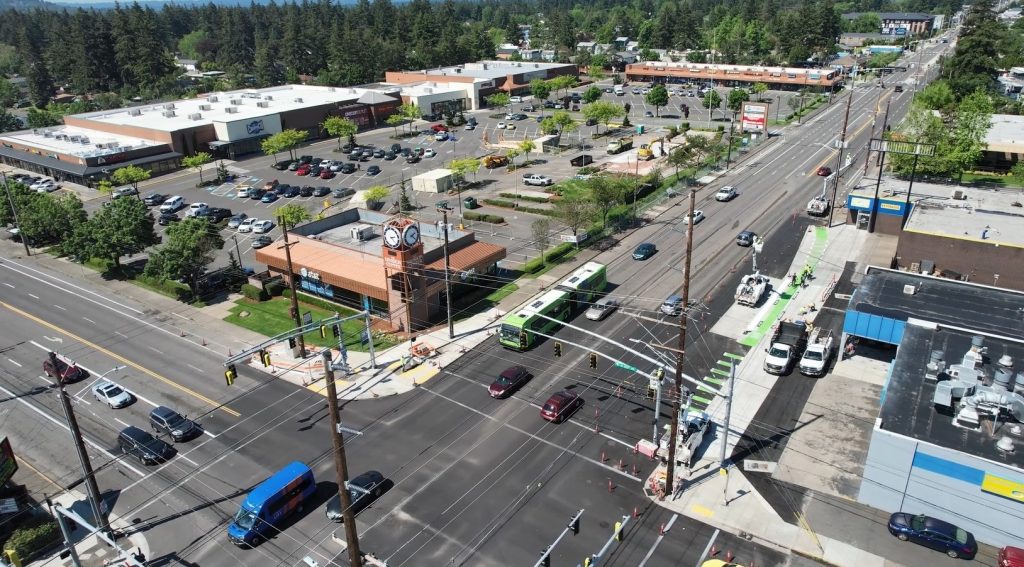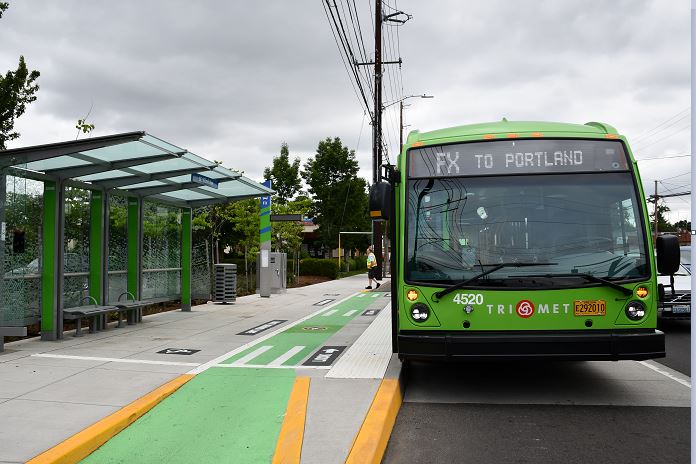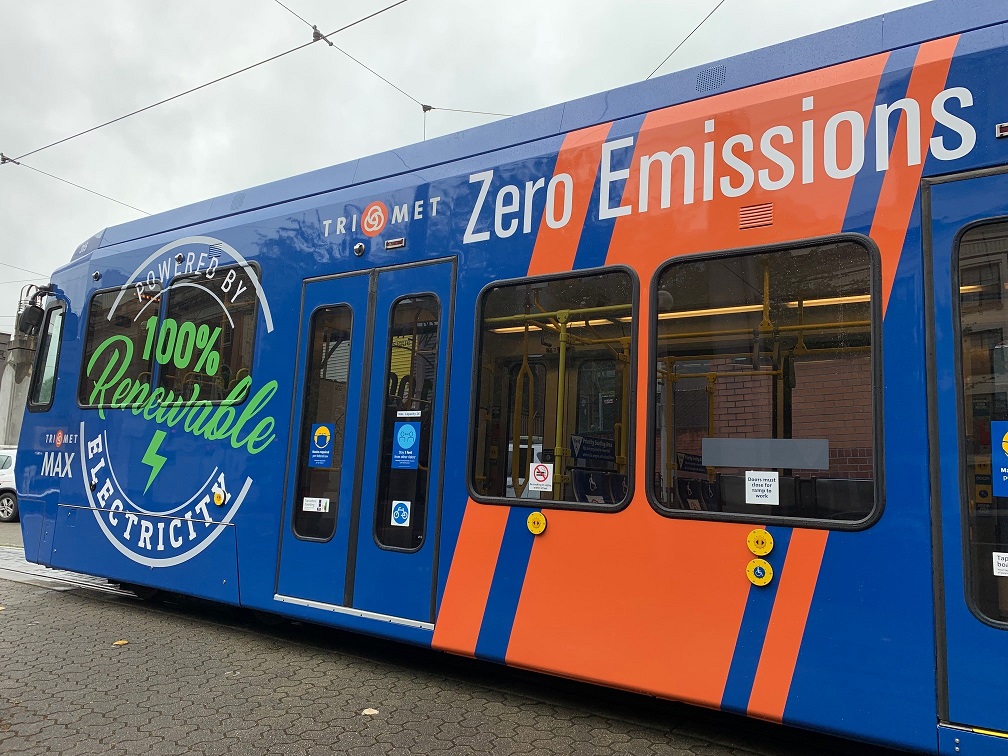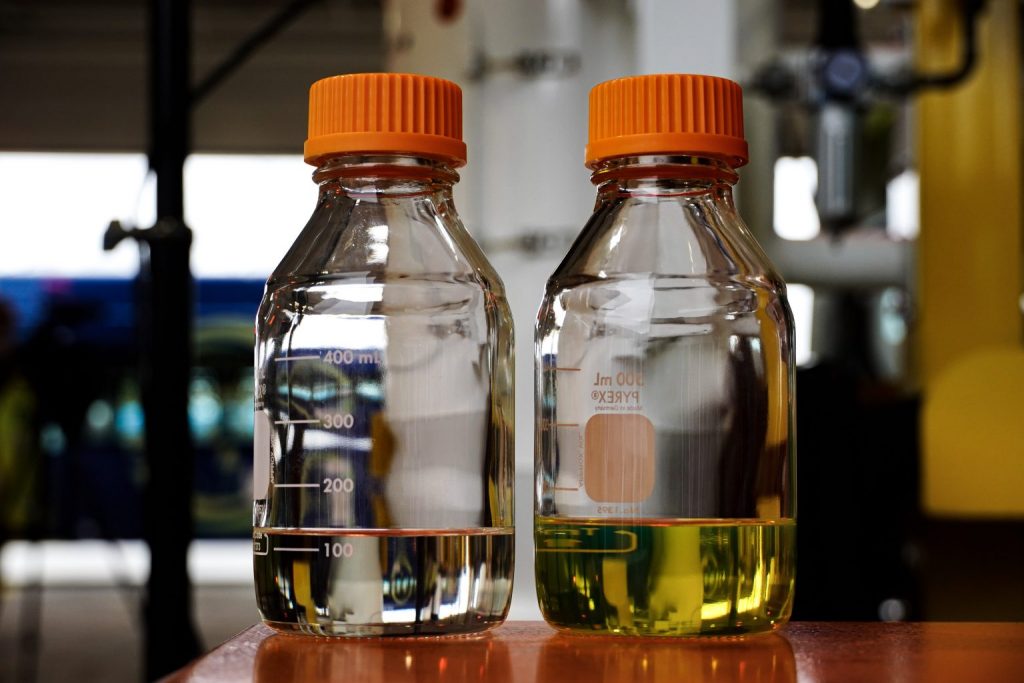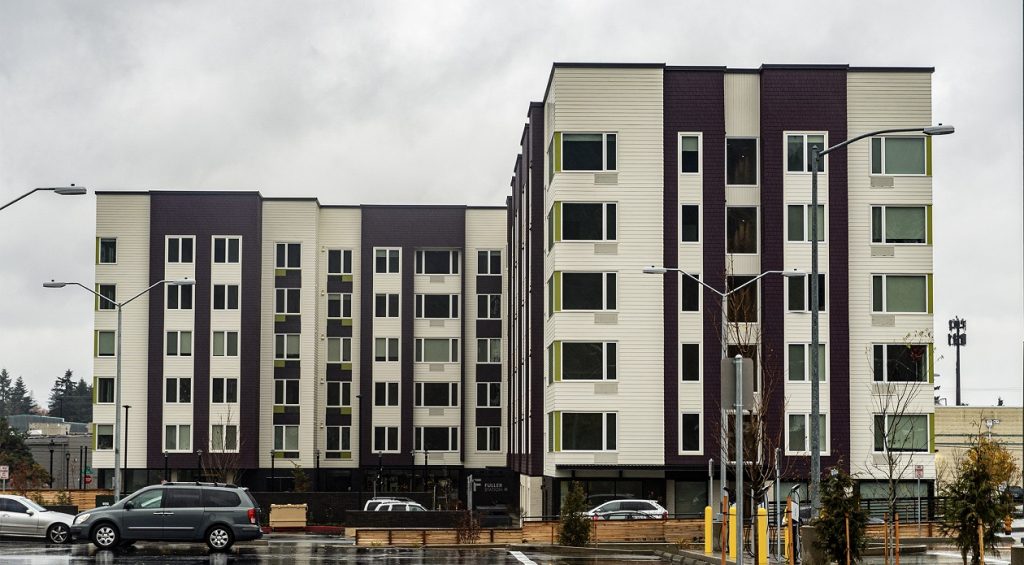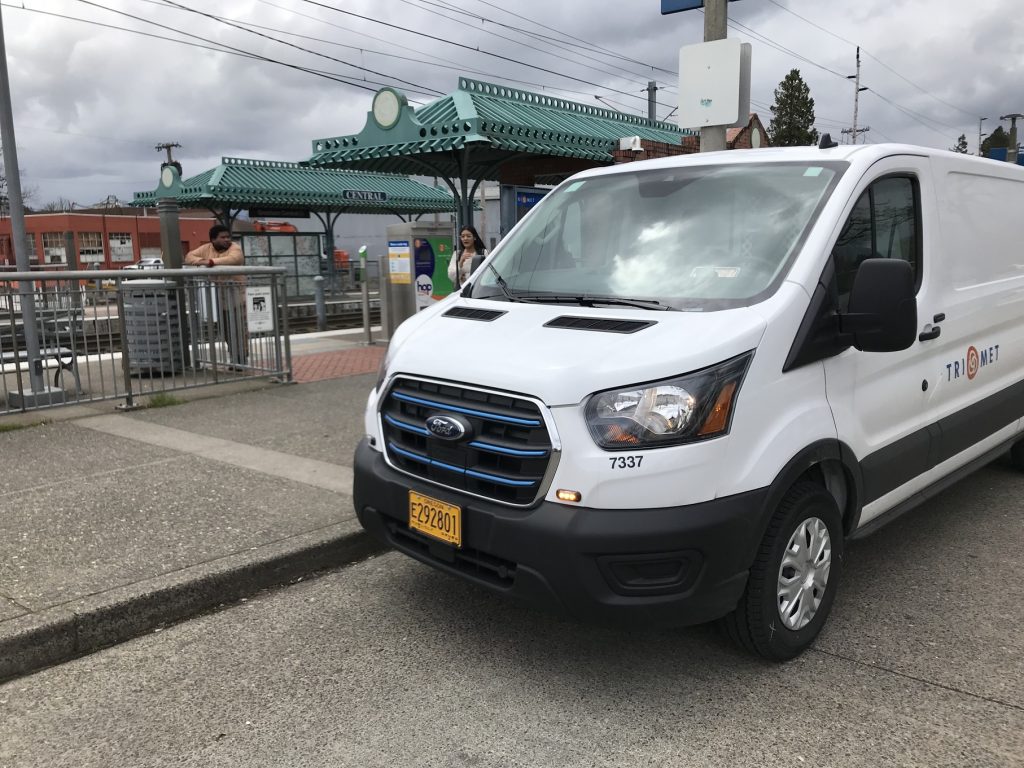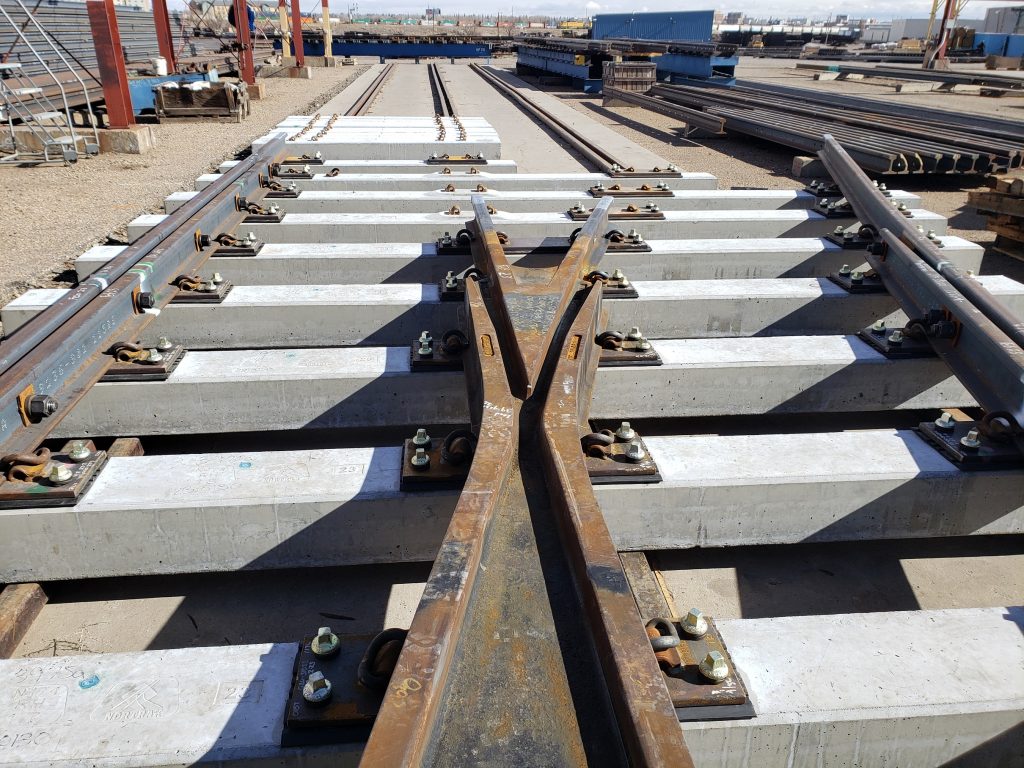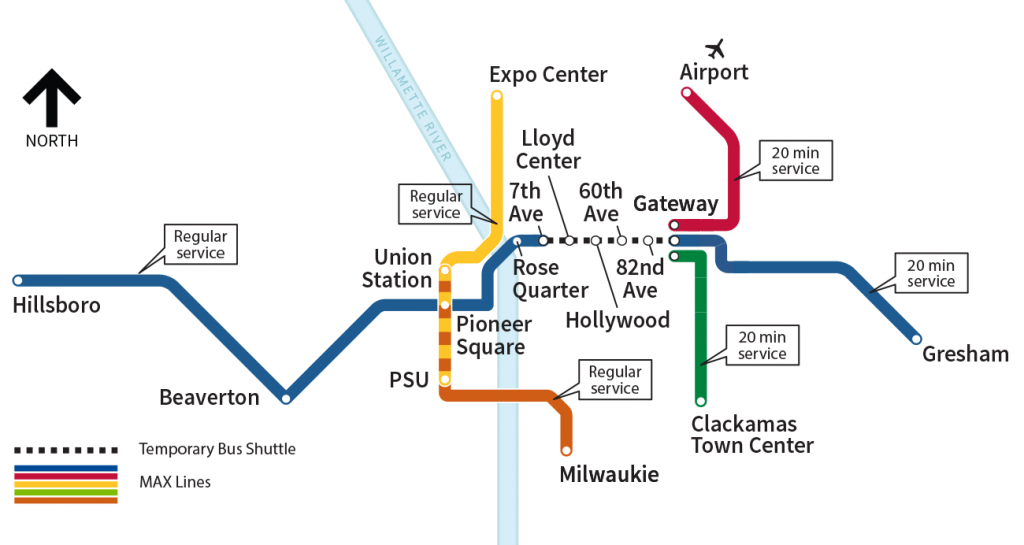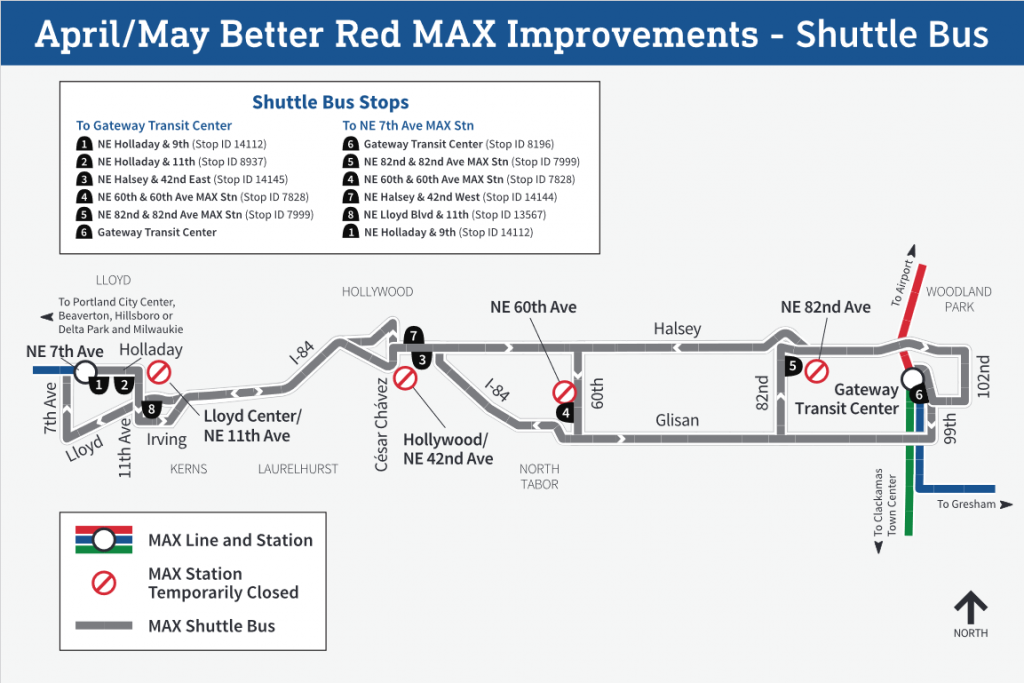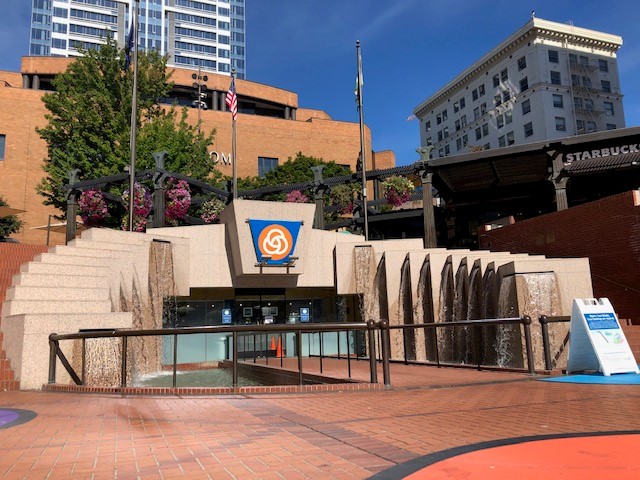New platform at Portland International Airport (PDX) will be constructed, June 18-Oct. 21, along with a second MAX Red Line track
As TriMet rolls past the 65% mark for construction of our A Better Red MAX Extension and Reliability Improvements Project, a four-month disruption to the MAX Red Line is necessary to get us closer to the finish line. During the 126-day project, lasting June 18 through Oct. 21, stations between Gateway Transit Center and Portland International Airport will be closed, allowing crews to access TriMet right-of-way and perform major construction. Shuttle buses will replace MAX Red Line trains and serve closed stations.
The disruption will allow for Better Red’s most intensive work yet, which includes building around half a mile of new track and demolishing and reconstructing the Portland International Airport platform.
TriMet will have extra staff—our Ride Guides—stationed at the Gateway Transit Center and PDX for the first two weeks of this latest phase of the project. Transit Security Officers and customer service personnel will be at PDX and Gateway at other times during the project and can also assist riders. Riders will want to look for signs directing them to shuttle bus stops. For more information about the project, go to trimet.org/improvements.
Shuttle buses: Gateway to PDX
From June 18-Oct. 21, the only TriMet service provided to Portland International Airport will be by bus. Shuttle buses will take riders to MAX stations between Gateway Transit Center and PDX, departing about every 15 minutes.
MAX Red Line trains will continue to run between Beaverton Transit Center and Gateway Transit Center, but will be arriving less often—every 30 minutes instead of every 15 minutes.
Riders will want to plan ahead, as the disruption could add up to 30 minutes to some trips. You can do that now by going to trimet.org/planner. Just remember to set your travel time for a date during the disruption period. We’re thankful to have understanding riders, and we appreciate your patience as we make these improvements. We look forward to introducing you to the new and improved PDX MAX Station when service returns on Sunday, Oct. 22.
Track and platform construction
Observant riders may notice that the Portland International Airport MAX Station looks different from most of our other rail stations. It’s triangular and tapered at the eastern end, rather than being rectangular and uniform. That has worked for the current configuration, where the track splits at the station, sending trains to either side of the platform. But we want to reduce delays and increase reliability, so we’re adding a second track and making the tracks parallel.
TriMet looked to the MAX Orange Line, featuring our newest stations, for how to design an updated PDX platform. Beyond giving riders more space, a rectangular platform will also allow for the installation of an improved shelter, providing coverage to access both MAX cars and offering people more cover.
The second track will be built along the section of MAX Red Line between Air Cargo Road and PDX. This critical part of the Better Red Project will allow trains to move around each other without having to wait for one to pass. Additionally, TriMet crews will use the time to build a new multi-use path and rail crossing at Air Cargo Road, along with nearly a dozen smaller maintenance and improvements projects along the disrupted section of trackway.
A Better Red
A Better Red is TriMet’s largest rail project since the opening of the MAX Orange Line in 2015. TriMet is adding another track for MAX Red Line trains between the Gateway Transit Center and Portland International Airport, building new bridges to carry these trains and a new platform north of the Gateway Transit Center. In Washington County, TriMet is extending the Red Line west 10 stations, to run between Fair Complex/Hillsboro Airport and PDX
Recently, we finished tying in special track work at Gateway Transit Center. That track component is a key piece that will connect A Better Red’s various improvements together once the project is completed and opens to the public in late 2024. A Better Red is one of many ways TriMet is addressing the transportation needs of the Portland metro area. Better, more reliable transportation options mean cleaner air, improved convenience and more opportunities for everyone.
For more information on A Better Red, visit trimet.org/betterred.

